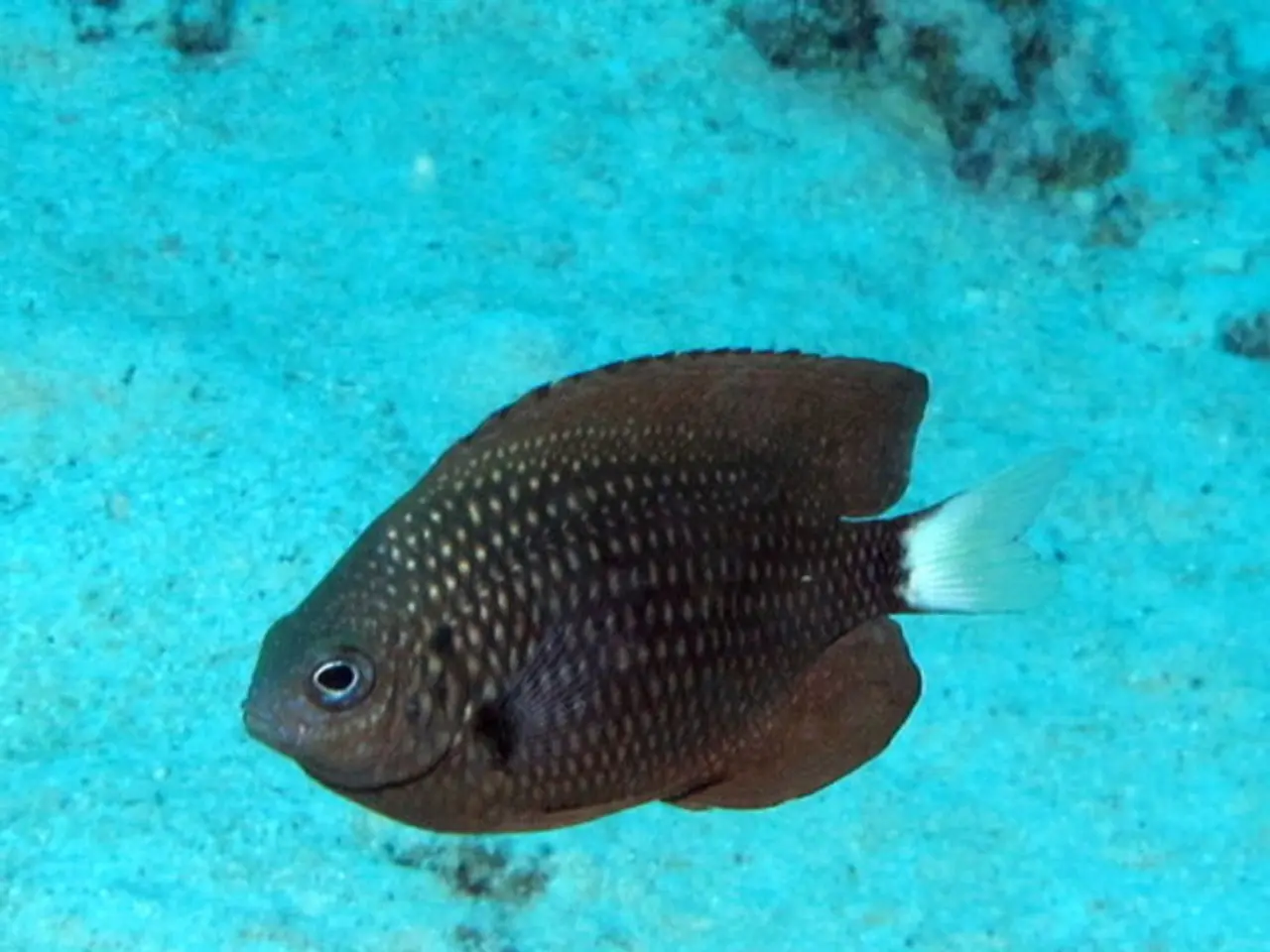Caution for Travelers in Spain: Potentially Harmful Substances Found on Busy Coastal Areas
Warning Issued for Weever Fish Stings on Costa Blanca Beaches
Bathers visiting the Costa Blanca in Spain are being advised to exercise caution when entering the Mediterranean sea, particularly on sandy shore sections, due to the presence of the weever fish. These small, venomous creatures burrow halfway into the sand, making them difficult to spot for unsuspecting vacationers.
To prevent accidental stings, lifeguards recommend avoiding walking barefoot in shallow sandy or muddy waters. Wearing beach shoes can help protect against these hidden hazards. Additionally, bathers should be cautious when entering or moving in shallow waters, especially near rocks and sandy seabeds where weevers are known to live.
Local authorities and emergency services are taking the threat seriously. Lifeguards, police, and other security forces on Carrer La Mar beach in El Campello are practicing for emergency situations involving weever fish stings. A simulation of a weever fish sting was recently performed, with a young man acting as the "victim" being treated within ten minutes by the emergency services.
If a sting does occur, it is recommended to rinse the area with seawater (not fresh water) to remove any venom and seek prompt medical attention or use the first aid post available on many beaches. In some cases, stings can cause severe swelling, and in people allergic to the venom, symptoms can be more severe, including headaches, dizziness, fever, vomiting, loss of consciousness, or even cardiac arrest.
Spain's emergency services have been dealing with an increase in weever fish incidents this summer. Between early June and mid-July, lifeguards have intervened in 44 incidents of jellyfish stings and treated beachgoers 189 times due to weever fish stings.
The weever fish, also known as pez escorpión (scorpionfish), pez araña (spiderfish), and faneca brava (wild sea bream), is one of the most dangerous poisonous animals in Europe. Its venom contains serotonin and proteins that cause histamine release in humans.
Vacationers and bathers are urged to heed the advice of lifeguards and pay attention to local beach warnings. Lifeguards are present on many Costa Blanca beaches and can provide guidance and first aid if needed. If stung, immediately seek out a lifeguard for treatment.
As always, when enjoying the beautiful beaches of the Costa Blanca, remember to respect the local wildlife and do not provoke or disturb it. Stay safe and have a wonderful holiday!
- To ensure overall health and wellness during their stay, holidaymakers could consider incorporating fitness and exercise routines into their beach lifestyle.
- In addition to the weever fish advice, it's crucial to prioritize mental health, perhaps by allocating time for relaxation and mindfulness activities.
- For a skin-care regimen that accommodates beach life, consider using sunscreens with SPF protection and moisturizing creams to maintain healthy skin.
- Nutrition plays a vital role in upholding wellness, so pack a selection of nutritious snacks, and choose balanced meals when dining at local establishments.
- On days off from the beach, explore travel destinations within the Costa Blanca region, such as museums or sports facilities, to enrich your lifestyle and create unforgettable holiday memories.






